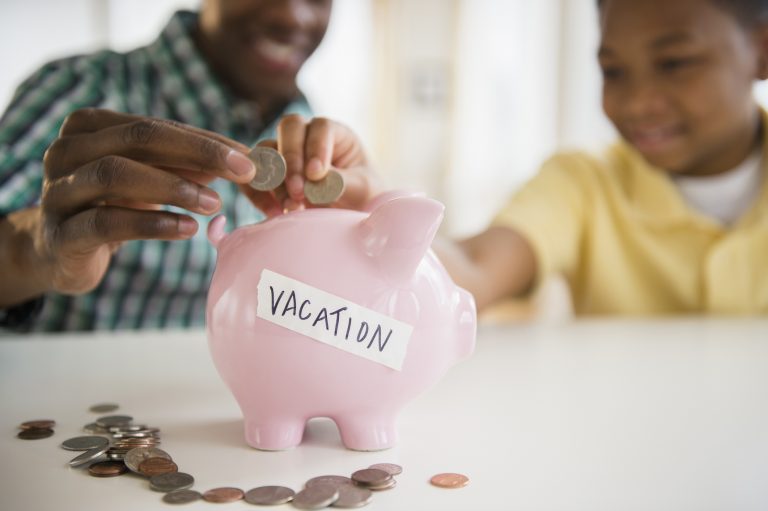There’s a lot to love about frugal living. But you may have questions about what it’s like to commit to true frugal living. Are you going to feel deprived? Is this a life of sacrifice?
The answer to both questions is a resounding NO. Frugal living isn’t about living a life of deprivation. It’s about learning to save money and use your funds in meaningful, intelligent ways. Frugal living is making your money work for you, instead of you scraping away at your bank account every month.
Frugal Living Is Managing Money
We often talk about our financial goals as a goal to be “comfortable” financially. The hard truth is that you will never be comfortable if you don’t manage the money you’re making. The good news, however, is that you can actually be comfortable with just about any income if you’re serious about frugal living.
Frugal living means knowing how much money you have, how much you’re spending and making the right spending choices to ensure that you don’t spend more than you can afford to. You are in control of your budget and your money, and the choices you make can help you create the comfort that you’re looking for. In short, if you spend less than you have through wise spending and saving choices, you will have a financial cushion. And cushions are comfortable.
Stretch Your Dollars
Your goal with frugal living is to make your dollars stretch. Ideally your money stretches so much and so well that you live well below your means and can enjoy opportunities when they come along.
You can apply your frugal living wisdom and practices to every area of your life. In fact, it doesn’t take long for the tricks and strategies you learn to become every day habits because they just make sense. Why spend more when you don’t need to? Why not enjoy creating your own financial comfort?
Create a Budget
You need to know what goes into your bank account and what goes out of it. Not only do you need to know, you need to be responsible and plan for those transactions. Pull reports from your online banking websites and check your spending. Look for areas where you are clearly overspending or wasting your money and then create a budget for your monthly income. You can take advantage of the many finance apps to help you monitor and stick with your new budget.
Many of these finance apps can link to your bank accounts and credit cards so that you can start tracking your spending effortlessly and even create limits for yourself on how much you can spend every day or every week in certain categories like food or entertainment.
Eliminate Debt
Once you are in control of your budget, you can focus on eliminating debt payments and forgoing any new debt. Once you’ve cleared out old spending, you can better save for future goals. In fact, for some people who are interested in frugal living, one of their first steps is to cut up their credit cards and arrange a debt consolidation loan. A short term loan will pay off large, expensive debts and consolidate all of them into a single loan with a single payment.
Often that monthly payment is far less than the individual ones so they have more money to use as they pay off old debt while also trimming the fat in other parts of their budget.
Reduce Your Household Bills
Family life is expensive. Even if your family is only you and a pet, investing in your family (and yourself) can be a means of improving your finances down the road. Frugal living is seen in many areas, and that includes in your household bills. You can reduce your household bills in many different ways, some more dramatic than others.
If you are living in an expensive area, you can save tremendously by moving to a less expensive area if you are willing to make the move and take the risk. Not everyone can afford to uproot a family to move from an expensive state to a less expensive one, but even just moving into a smaller house or apartment in your current neighborhood or one neighborhood over can add up quite a bit.
You can cut household bills in other ways, without moving, by cutting cable and looking closely at your phone bills. Change providers if rates are lower and service is essentially the same. Look for other ways to save like changing electrical or gas providers, turning up the thermostat or changing how frequently you water the lawn.
Look for ways to reduce your household bills on clothing or household goods as well. You don’t necessarily need to buy new clothing or new décor items on a regular basis. Just because a new top or pair of shoes catches your eye doesn’t mean you need to dip into your budget to buy them. Let your clothing and household items serve a bit longer before you replace them. Buy items that can serve you for a long time rather than a quick fad or a passing fancy.
Save Money on Food and Entertainment
Tremendous amounts of money are spend on food and entertainment. This is an area of your budget where you can really exercise frugal living. Start by doing a lot more cooking and meal prep at home rather than going out to eat. Then investigate the many ways you can be saving money on your groceries every month.
If you enjoy going out with friends and spending money at bars or events, look for ways to cut way back by still enjoy the time you spend with friends. Take advantage of happy hour specials or only go out every other night.
Invite your friends over to play poker and buy drinks to serve at home. Have a cook out at your house instead of going out to eat. Look into rotating dinner parties with other families who like to entertain. There are many free concerts and events. You can still be social and friendly and exercise some frugal living practices.
Be honest with your friends that you’re trying to build up your savings and they may appreciate that you are moving the social hours away from expensive venues into ones that are more affordable for everyone.
Scale Down Transportation Spending
Transportation is another area where families spend a great deal of money every month, especially if they like to try to impress others with large, expensive cars. Unless you need a specialized vehicle for work, there is not really that much difference between the economy model and the luxury model of a given car.
A car with four wheels and an engine will likely get you where you need to go, so embrace the real meaning behind frugal living and trade in your big expensive car for one that you can easily afford to pay off. Once your car is paid off, it will continue to get you where you need to go, but for only the price of fuel and maintenance.
If you live in an area that doesn’t require driving, why not get rid of the car all together? You can give up the car payment, the parking payments, the insurance costs, the price of fuel and the repair and inspection bills that all come with car ownership. Taking public transportation or walking can help create a smaller emissions footprint as well.

Find Budget Travel
Living a frugal life doesn’t mean you have to stay home and never travel. The possibilities in budget travel are endless. In fact, travel often encourages people to continue to pursue a frugal life because they see how other people are able to live well with so much less and they enjoy having the funds available every month to spend on trips and adventures when the opportunity arises.
Budget travel can involve last minute travel deals on cruises and airlines. It might be road trips and camping trips that cost you little more than the fuel and the cost of an expensive campsite. You might spend your time on the road in your own van or cut your housing costs and encourage more budget
travel by spending some time living in a tiny home or in a camper that can double as both your house and your means to see the world, or at least the world that is within driving distance.
Embracing frugal living can be hard work, but it is also tremendously freeing. When you take control of your family finances, you are not longer at the mercy of credit card bills and old debt payments. Frugal living is not just about clipping the occasional coupon. It is a true mindset change that will ultimately change the way you live.

